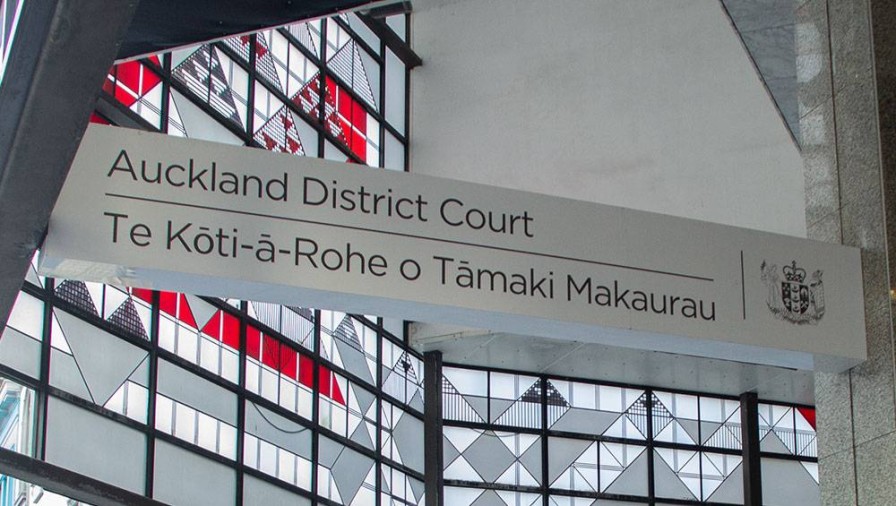FFS: we still need to talk about name suppression
ANALYSIS: NBR’s reporting on a horrific case involving a member of a wealthy family this week has once again highlighted flaws in New Zealand’s name suppression laws.
ANALYSIS: NBR’s reporting on a horrific case involving a member of a wealthy family this week has once again highlighted flaws in New Zealand’s name suppression laws.
Your co-editors have twice made the case in this column that New Zealand’s name suppression laws are inadequate.
The most recent, published in March, talked about how it was still too easy for well-resourced defendants to keep their identity secret.
We were talking about the identity of the person at the centre of the Pushpay insider trading case, who several years later was finally able to be named as NBR Rich Lister Peter Huljich.
Unfortunately, we’ve now got another example to discuss. Even worse, this one involves offending that can only be described as horrific.
ICYMI, late last Friday, NBR was the country’s only media outlet to report on the sentencing in the Auckland District Court of a 46-year-old man who had been convicted of the possession and importation of child sex abuse material.
The appalling details of the offending can be read here, but the person faced representative charges of knowingly importing an objectionable publication, and of knowingly possessing an objectionable publication.
Those charges represented a total of 11,775 objectionable files that were downloaded using peer-to-peer software. The offending occurred between September 2023 and June 2024.
Last Friday, the person was sentenced to two years and five months’ imprisonment by Judge Maria Pecotic. The offending itself was newsworthy, but it’s what happened next that has given this story national interest.
The person, who we can describe as a member of a wealthy family, had their name, their family's name, and the name of the high-profile company associated with them, permanently suppressed.

Take the time to read the comments on the two stories we’ve published this week on the case, and you will get a sense of the outrage at this person being granted name suppression. But it was an email we got on Tuesday that perhaps captured it best. We’ve reproduced it in full below, while removing the sender’s name.
“Dear Simon [Shepherd],
It was with much dismay and interest that I read your article published Friday 15 August: ‘Member of wealthy family keeps name secret’.
What an extraordinary set of circumstances. Each sentence evinced fresh horrors – the scale, the timeframe, and obviously the content itself. And, to receive not only permanent name suppression, but name suppression for the family and related company ... it all boggles the mind.
I came across your article via screenshots on Twitter. When I looked into the case to corroborate the screenshots (you know what Twitter can be like), I couldn't find reporting of this case on any other NZ media website. I did find reporting of quite a few cases involving CSA and name suppression; what struck me was that these other cases often involved temporary name suppression, and for far, far fewer files of offensive material. It appears that previous cases had people caught with 20-100 files of offensive material – not almost twelve thousand.
This case seems like such an outlier to me – to have this quantity of material, and to receive such lenient sentencing after a relatively paltry $50,000 donation to charity. ‘Rich privilege’ has never seemed starker.
I wonder why NBR was the only outlet reporting on this case. I wonder how someone could spend day after day, month after month, consuming content of child torture, and still be determined by a judge to have ‘good character’. I wonder how fifty thousand dollars has any effect at all on the thousands of children scarred for life (if indeed they lived), by their abuse, so gleefully consumed by this person. I wonder why being from a known family has any bearing at all, given the scale of the offending.
I wonder why I'm writing this to you – I suppose I am simply so horrified, so concerned by this case, that I need to talk about it; and I wonder why it's not front-page news in every outfit in the country.
Thank you to you and your editors for bringing this case to light.”

We couldn’t have put it better ourselves. Of course, we now know Customs, which brought the charges, is considering an appeal.
“Any appeal against name suppression requires consent of the Solicitor-General, or her delegate, and Customs is in discussions with the Crown regarding this matter,” a spokesperson told us.
But contrast it with another case this week: on Wednesday, the Department of Internal Affairs said a 22-year-old had pleaded guilty in the Nelson District Court after being charged with: four counts for creating objectionable material depicting bestiality and urination; 21 counts for distributing objectionable material depicting the sexual exploitation and abuse of children, and bestiality; and 25 counts for possession of objectionable material depicting the sexual exploitation and abuse of children, and bestiality.
That person was named as Storm Constable-Carter and he will be sentenced on December 16.
The thresholds for granting name suppression to a defendant are set out in section 200 of the Criminal Procedure Act 2011. It lists eight criteria and Judge Pecotic found two applied in the wealthy family member case.
She found naming the defendant would 'cause extreme hardship' and 'endanger' their safety. In the case of the interested party, section 202 of the same Act applied. The judge found that naming them would cause ‘undue hardship’.
At sentencing, the judge set a starting point for a jail term at five and a half years, but discounted the sentence by 56% for reasons including an early guilty plea (25%), good character (5%), rehabilitation (10%), and mental health issues (8%). There was also a discount for remorse (5%), and another 3% for ‘sizeable’ donations to two charities worth $50,400.
NBR has been tracking this case for months. Earlier this year, we had applied for access to the court file, because we know which family, and which business, this person is connected to.
NBR has been tracking this case for months. Earlier this year, we had applied for access to the court file, because we know which family, and which business, this person is connected to.
It has slowly been picked up by other media. Speculation is rife, and predictably inaccurate, on social media as to who the person might be.
What makes all this even more difficult to discuss is that any evidence about medical history, submissions, and affidavits were also suppressed. We can’t get into any great detail about why this person has not been named.
The person was represented by Emma Priest. Customs, which brought the charges, was represented by Joseph Xulue. An “interested party” was represented by Julie-Anne Kincade, KC.
The man is now in jail and is automatically registered on the Child Sex Offender Register. But while their name remains a secret, has justice really been served?
So, once again: Reform. Name. Suppression. Laws.
Hamish McNicol and Calida Stuart-Menteath are NBR’s co-editors.
Sign up to get the latest stories and insights delivered to your inbox – free, every day.